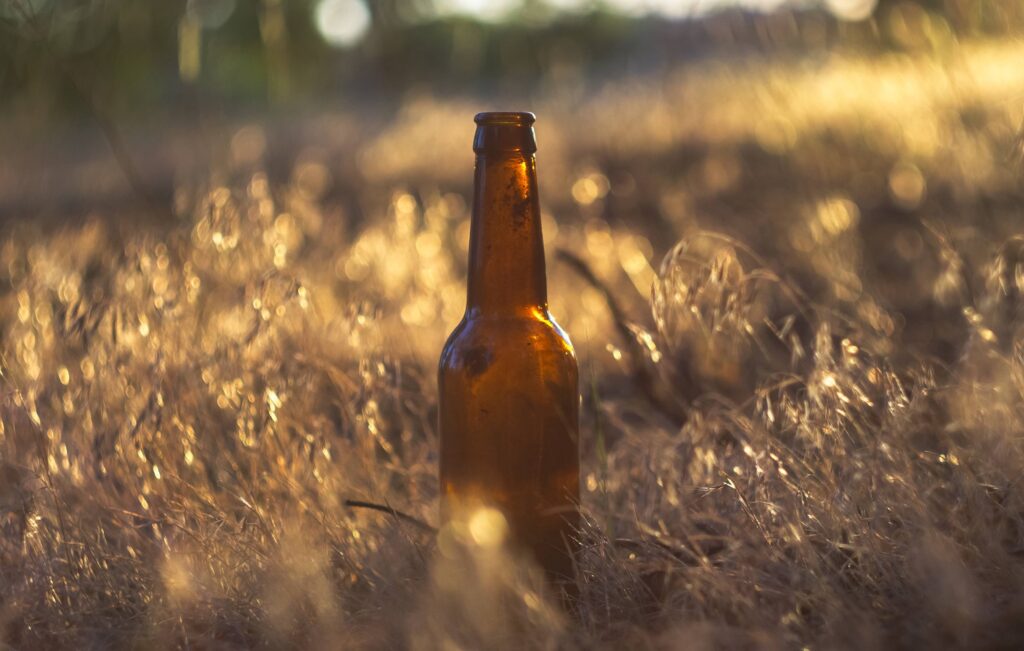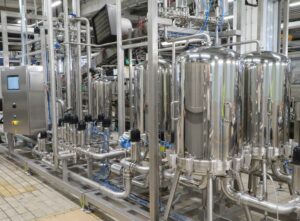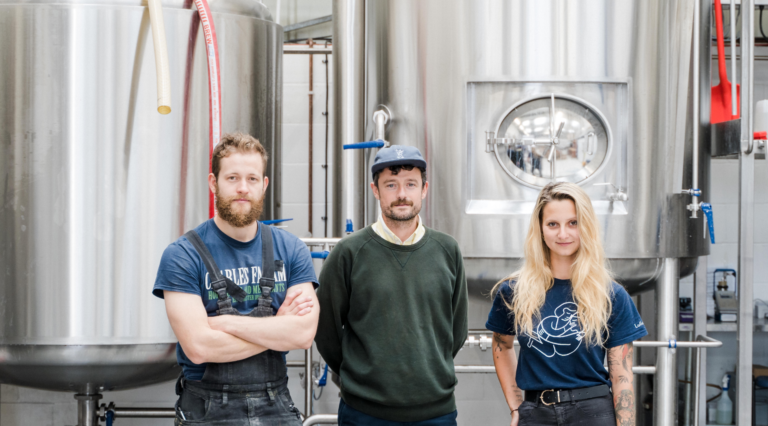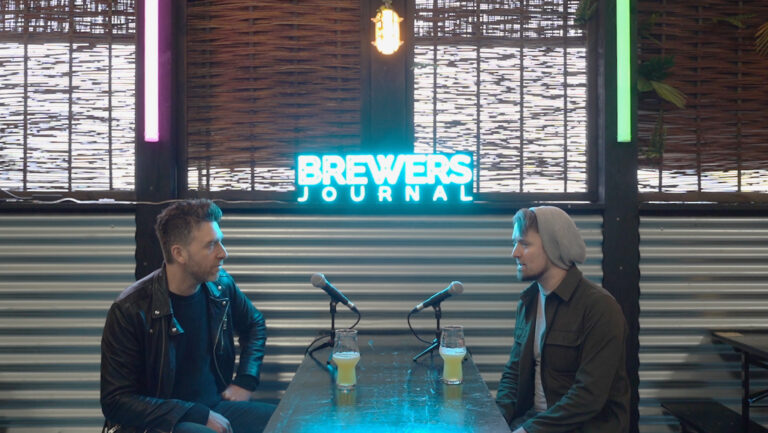As brewers, we can no longer approach the idea of sustainability as something we can take action on tomorrow. The time, as Tim O’Rourke explains, is now.
There is no doubt that we are living through a period of unparalleled climate change. To quote the Secretary General of the United Nations, Antonio Guterres, “the era of global warming has ended; the era of global boiling has arrived”.
Last year, 2023, was the warmest year on record with an average temperature increase of 1.350C above pre-industrial times.
For consecutive months the increase in temperature reached 1.50C, which is the maximum limit set at COP21 in Paris in 2015.
There is a clear link between climate change and the concentration of carbon dioxide in the atmosphere, insulating the Earth and preventing heat escaping.
For centuries emissions were balanced by the natural carbon cycle where carbon dioxide is taken up by plants on land and algae in oceans to maintain a stable atmospheric CO2 concentration of under 300 mg per litre of air.
After 1900, industrialisation, burning fossil fuels, (coal, gas, and oil) released bound carbon dioxide into the atmosphere overwhelming natural cycles, resulting in higher concentrations of greenhouse gases which has risen to 424 mg per litre of air last year.
CO2 remains in the atmosphere for between 300 to 1000 years and if we are to continue to enjoy our current quality of life, then all individuals and stakeholders in industry and Government must work together to reduce carbon emissions immediately.
However, the impact of human activity on the environment goes much deeper than just greenhouse gas emissions.
In 1987 the United Nations Brundtland Commission defined sustainability as “meeting the needs of the present without compromising the ability of future generations to meet their own needs”. Despite having many meetings, setting many targets, and giving many promises we are as far away from that aspiration as ever. It is about our children and grandchildren enjoying a similar quality of life as ourselves.
We accumulate money to be able to leave our children an inheritance, but we have not invested in the changes needed for a sustainable future.
Our brewing industry is in a unique position to showcase how industries can work together towards our climate change goals.
Unlike most industries, brewing sources most of its ingredients: water, energy (electricity and gas), as well as malted barley, locally and most of its packaging materials are recycled.
It allows for close co-operation with growers and suppliers, minimising the length of the supply chain. Most craft beers are supplied to the domestic market either through pubs or supermarkets and off licences making it easier to influence the supply chain and making logistic and environmental savings.
Our brewing industry is in a unique position to showcase how industries can work together towards our climate change goals.
Tim O’Rourke
Using regenerative farming techniques minimises the need for artificial fertilisers and pesticides reducing carbon emissions as well as benefits to biodiversity, cutting pollution of water sources and providing improved soil conditions.
Regenerative farming practices use livestock and cover crops to improve soil organic content. Organic farming is similar with a focus on using natural methods across the whole farm, not just for soil health, with benefits to biodiversity encouraging natural insect predators in place of pesticides and reducing fertilisers polluting water sources.
The actual brewing process itself has a relatively small carbon footprint mainly associated with energy requirements (scope 1 and 2).
Scope 1 includes gas which can be replace by biomass, hydrogen or other low carbon fuel sources and Scope 2 is principally electricity which can be supplied from green energy sources and on-site generation through wind turbines or solar panels. The recent energy price increases principally due to the Ukraine war have made projects which might have had paybacks over several years cost effective in under a year.
Packaging, particularly for craft brewers is another opportunity for businesses to save resources and money.
For many a significant proportion of sales is through a brewery tap room which uses returnable packaging requiring no delivery.
Most other sales are in keg and cask which are fully recycled, and Councils provide facilities for recycling empty small pack containers.
Brewing enjoys a close relationship with its customers through brewery visits, brewery tap rooms and selling “greener” draught beers through pubs, allowing it to promote its good environmental practices to the consumers.
The brewing industry is well positioned to reduce its greenhouse gas emissions to achieve sustainable net zero and improve the environment through a few important changes.
Here are some ways we can action this….
We can source brewing materials from farms that use regenerative practices, we can use on-site or commercial green energy supplies, we can make the process as efficient as possible and reduce waste and water usage, we can recycle and repurpose as much as possible in the brewery.
When it comes to recycling, we can use recyclable packaging as much as possible and make it easy to return and reuse. We can source and deliver locally to minimise transport, and we can deliver beer in bulk reusable containers and support the on-trade as the preferred location for social drinking.
Let’s make improving the environment cool. We can make the brewery and taproom welcoming, by sharing your achievements. We can encourage good environmental practices from your customers, make it a green space (pot plants will help!) provide incentives to customers who arrive by walking or bike rather than cars and provide EV charges on site. Lead by example showing how the company is committed to a better tomorrow.
We should hold authorities’ feet to the fire and ensure they deliver on their legal obligations and their promises. For example, the average volume of waste from households which is collected for recycling and was recycled by all English councils was 44.1% in 2021 (ref gov.uk).
As brewers we must avoid “green washing”; making unsubstantiated or unverified claims destroys the credibility of any declared benefits. Let’s avoid “outsourcing” this is just kicking the can down the road. Invest money in green projects for the brewery or in the supply chain.
Planting trees is great and will improve the environment and capture carbon but should not be an excuse to put off making other investments to reduce emissions.
Breweries can also benefit from carbon capture which removes CO2 from the atmosphere. Many systems are complex and involve storing carbon as carbonates in deep in the earth.
However, simple carbon capture is practiced by Khmer Beverage, a brewery in Cambodia, which bubbles boiler exhaust fumes through a tank of spent caustic trapping the CO2 and neutralising the alkalinity, a good example of win-win.
Being “environment-ale” does not have to be difficult and should be self-funding. Looking after the environment has benefit for the employees, is better for the profits and will receive endorsements from the customers.









